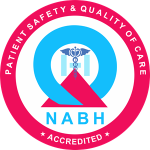Palliative Medicine
Palliative medicine is a specialized field focused on improving the quality of life for patients with serious, chronic, or terminal illnesses. It emphasizes relief from symptoms, pain, and the psychological, social, and spiritual issues associated with these conditions. Palliative care can be offered alongside curative treatments, aiming to enhance comfort and well-being at any stage of illness.
Our Doctors
Facilities & Services
Edit Content
- Stroke Management:
- Mechanical Thrombectomy: Removal of blood clots from blocked arteries in the brain, especially for ischemic stroke patients.
- Thrombolysis: Direct delivery of clot-busting medication to the site of the stroke.
- Aneurysm Repair:
- Coiling and Stenting: Minimally invasive techniques to treat brain aneurysms, where coils or stents are used to reinforce weakened blood vessels and prevent rupture.
- Arteriovenous Malformations (AVMs):
- Treatment of abnormal tangles of blood vessels using embolization to reduce or eliminate the risk of bleeding.
- Cerebral Angiography:
- Advanced imaging technique to visualize blood vessels in the brain and diagnose blockages, malformations, or aneurysms.
- Carotid Artery Stenting:
- Placement of stents in the carotid arteries to prevent strokes by treating stenosis (narrowing of the artery).
- Spinal Interventions:
- Treatment of spinal vascular abnormalities or compression fractures using minimally invasive techniques like embolization and vertebroplasty.
- Venous Sinus Thrombosis:
- Treatment of blood clots in the brain’s venous system using mechanical thrombectomy or stenting.
- Tumor Embolization:
- Preoperative or palliative embolization to reduce blood flow to brain tumors, reducing surgical risks or providing symptom relief.
Edit Content
- Stroke Interventions: 24/7 stroke management services, including both ischemic and hemorrhagic stroke care.
- Aneurysm and AVM Treatment: Expertise in treating complex aneurysms and AVMs using minimally invasive approaches.
- Comprehensive Diagnostic Imaging: Advanced imaging techniques such as CT angiography, MR angiography, and digital subtraction angiography (DSA) to evaluate neurological conditions.
- Carotid and Intracranial Stenting: For patients at high risk of stroke due to arterial narrowing.
- Vascular Malformation Embolization: For both cranial and spinal abnormalities.
- Tumor Embolization: Pre-surgical embolization to reduce blood flow to brain tumors.
Service Recipient Says

Oxmox advised her not to do so, because there were thousands of bad Commas, wild Question Marks and devious.
Kolis Muller NY Citizen
Oxmox advised her not to do so, because there were thousands of bad Commas, wild Question Marks and devious.
Kolis Muller NY Citizen














Oxmox advised her not to do so, because there were thousands of bad Commas, wild Question Marks and devious.
Kolis Muller NY Citizen